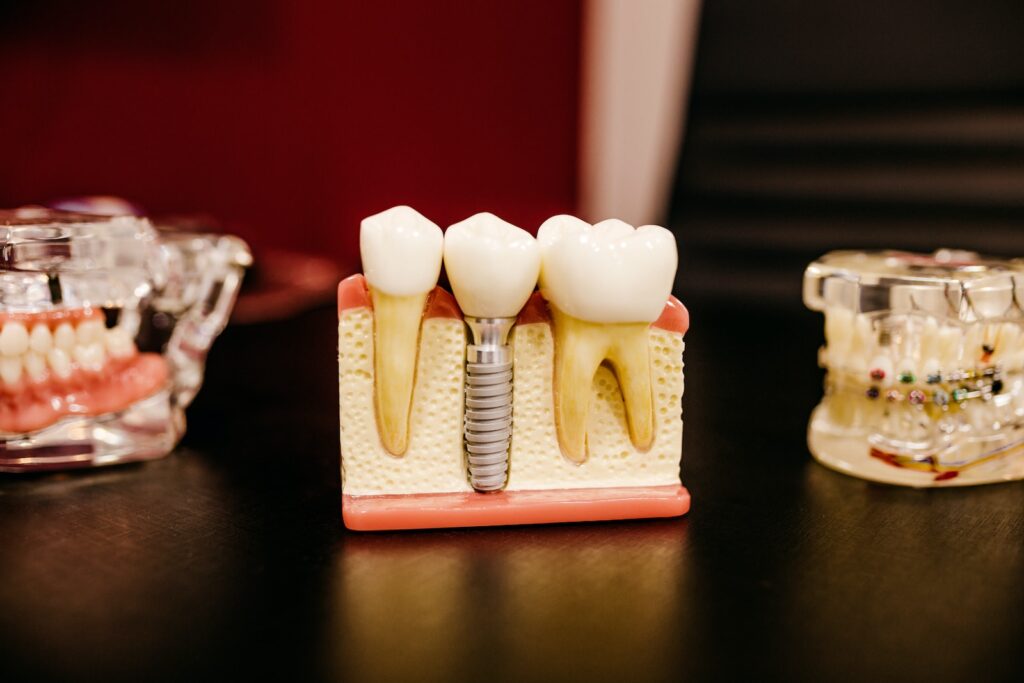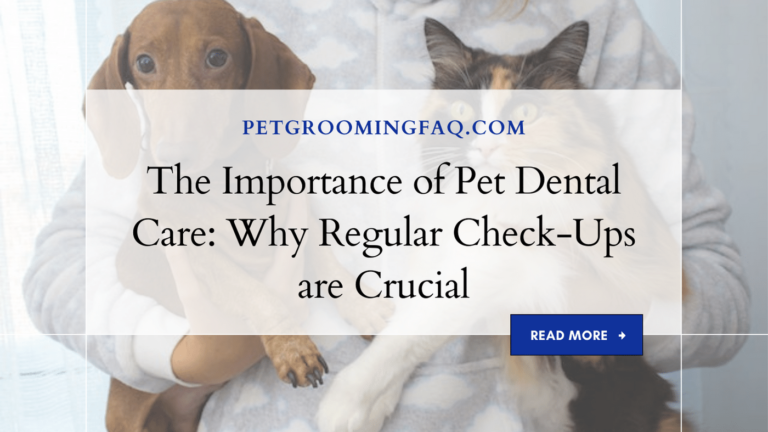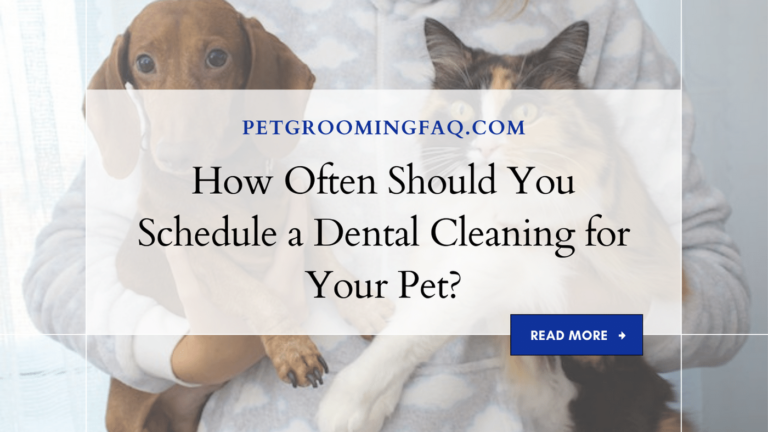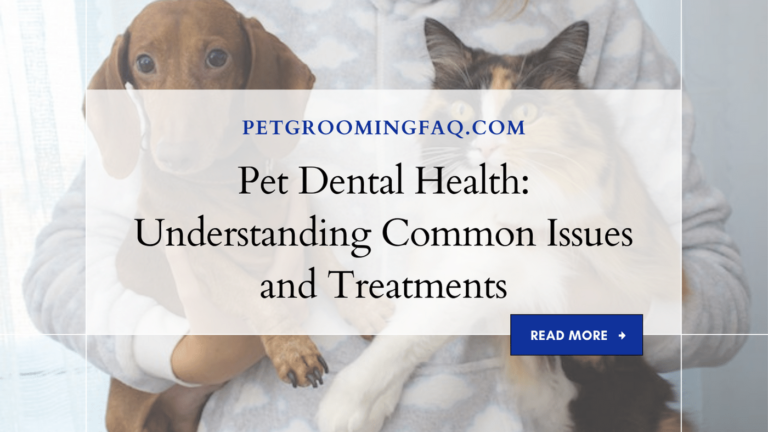Dental Care for Senior Pets: Special Considerations and Tips
As your furry friend ages, their dental health becomes increasingly important to maintain. Just like humans, senior pets are more susceptible to oral diseases and complications that can affect their overall health and quality of life. But don’t worry – with a bit of extra attention and care, you can help keep your senior pet’s teeth in tip-top shape!
In this blog post, we’ll cover everything you need to know about dental care for senior pets, including special considerations and expert tips to ensure a happy smile for years to come. So let’s get started!
Table of Contents
Oral Health Problems in Senior Pets

Dental problems are the most common health issue in senior pets, according to the ASPCA. These issues can include tooth loss, gum disease, and dental cavities. When your pet’s teeth start to deteriorate, it becomes harder for them to chew their food and they may develop difficulty swallowing.
If untreated, these dental problems can lead to other health problems, such as inflammation of the jaw and even death. Here are some tips to help keep your pet’s oral health in good shape:
Ensure that your pet has regular dental checkups by a qualified veterinarian. This will help identify any early signs of dental disease and allow for proper treatment before it becomes more serious.
Store food properly . Chewing is an important part of a dog or cat’s diet, but if their food is hard to chew due to chopped up pieces or large chunks, your pet may not be able to get enough nutrients from their food. Try cutting foods into smaller pieces so that they can easily eat them.
Water regularly . Just like humans, pets need water to stay hydrated which helps prevent tooth decay and other oral health problems. Make sure their water dish is clean and filled with fresh water every day.
Provide adequate nutrition . A healthy diet provides the essential elements needed for strong teeth and gums along with overall good health. Supplemental diets specifically designed for seniors should also contain complex carbohydrates and fiber which promote regularity in bowel movements and healthy gut flora which helps fight tooth decay.
Types of Dental Problems in Senior Pets
Dental problems in senior pets can be quite complicated, as their teeth may be less strong and more likely to decay. Some of the most common dental problems in senior pets include tooth abscesses, periodontal disease (gum disease), and canine tooth discoloration. Often, these problems are caused by a combination of age, diet, lifestyle, and genetics.
To avoid serious dental problems in your pet, make sure he is regularly checked by a veterinarian for changes in teeth or gums that could indicate a problem. If your pet does develop a dental problem, be sure to take him to the veterinarian as soon as possible for treatments that may include surgery or medication.
In addition to regular dental care, consider providing your pet with suitable chewing materials such as softwood blocks and bully sticks so that he may help maintain his teeth and gums healthfully.
Prevention of Oral Disease in Senior Pets
Oral health is essential for your senior pet’s overall well-being. Proper oral care can help keep teeth and gums healthy, reduce the risk of plaque and tartar buildup, and promote a healthy appetite.
There are a few key things you can do to help ensure good oral hygiene in your senior pet:
- Feed them a diet that is low in sugar and starch. These substances feed bacteria, which can cause gum disease.
- Give them regular cleanings by a veterinarian or one of our certified dental professionals. This will remove any built up tartar and plaque, which can lead to tooth decay.
- Keep their mouth area clean and well lubricated with saliva by giving them chew toys and regularly giving them water or ice chips to eat.
Management of Oral Disease in Senior Pets

Oral care for pets is an important part of their overall health and well-being. Pets, especially senior pets, often have more dental problems than their younger counterparts. While the following tips are not specific to senior pets, they are particularly useful when caring for these animals.
It is important to keep a careful record of your pet’s dental visits and treatments. This will help you to monitor your pet’s oral health and make sure that necessary dental care is being carried out.
To prevent plaque and tartar build-up on teeth, feed your pet a diet that features plenty of fresh water and soft food. Try to avoid giving your pet sugary treats or crunchy foods that can cause tooth decay.
If your pet experiences any oral pain or difficulty eating, consult with a veterinarian as soon as possible. Your veterinarian may recommend prescribed medications or surgery to correct the problem.
Treatment of Oral Disease in Senior Pets
There are a few things to keep in mind when treating oral disease in senior pets. First, keeping their mouths clean is key. Make sure they are getting plenty of exercise and fresh water, and give them chew toys to keep their teeth sharpened.
Second, pet dentists recommend using medications prescribed by a veterinarian rather than over-the-counter remedies. Prescription medicines can be effective at controlling oral disease in seniors, but always follow your veterinarian’s instructions very closely.
Always consult a holistic veterinarian if you’re trying to treat any dental problems in elderly pets – many holistic vets specialize in treating conditions like oral disease that overlap with overall health.
Preparation for a Specialized Dental cleaning
If your pet has dental issues, you know that regular dental care is essential to keeping their teeth and gums healthy. But what if you can’t get them to the veterinarian?
Here are some tips on preparing your pet for a specialized dental cleaning.
1) Consult with your vet about the best way to clean your pet’s teeth. Some pets may need a special toothbrush or flossing method specific to their breed or size of mouth, while others may do just fine with a standard tooth brush and toothpaste. Be sure to ask about any special preparations necessary before leaving the vet’s office!
2) Make an appointment with a dentyist who specializes in specialty dental cleanings. Not all vets offer this service, so be sure to inquire before making an appointment. This will help ensure that your pet is received by a qualified specialist and not treated like any other patient.
3) Keep all of your pet’s medical records readily available in case questions arise about their oral health during or after the cleaning procedure. Photographs of your pet’s teeth and x-rays taken before treatment may also be helpful in verifying the necessary treatments once home.
What to Do If You See Signs of Oral Disease in Your Pet
If you have a pet with dental problems, be sure to take action. There are a few things that you can do to ease the suffering of your pet and help them get back on their feet:
-Remove any food or gum wrappers from around the pets’ mouth – this will help to reduce bacteria build-up and keep teeth clean.
-Visit your vet regularly for oral care treatments, like scaling and flossing. These treatments will help remove plaque and tartar from the teeth, which can lead to periodontal disease, inflammation, and even tooth loss.
-Avoid giving your pet hard foods or crunchy treats. This can cause damage to their teeth enamel and make it harder for them to achieve oral hygiene. Instead, give them softer food that they can chew properly.
-Teach your pet how to use a water fountain or drinking toy – this will help rinse their mouth and avoid potential tooth problems.
Conclusion
It is always a good idea to keep your senior pet’s oral health clean and healthy.
Here are some special considerations and tips for dental care for seniors pets:
1] Provide plenty of fresh water – senior pets can lose up to 10x more water than younger ones, so make sure they have enough to drink at all times.
2] Monitor their diet – foods high in sugar or starch can promote plaque formation, so avoid those types of treats if you want optimum dental hygiene for your furry friend.
3] Brush their teeth regularly – brush their teeth twice daily if possible, using a soft toothbrush and warm water.
4] Floss them – flossing help remove plaque from between teeth, where bacteria can fester and cause the gums to recede over time .
5] Use a dental collar – some pets do better with dental collars because they help hold down the teeth and prevent them from shifting during brushing.








7 Comments